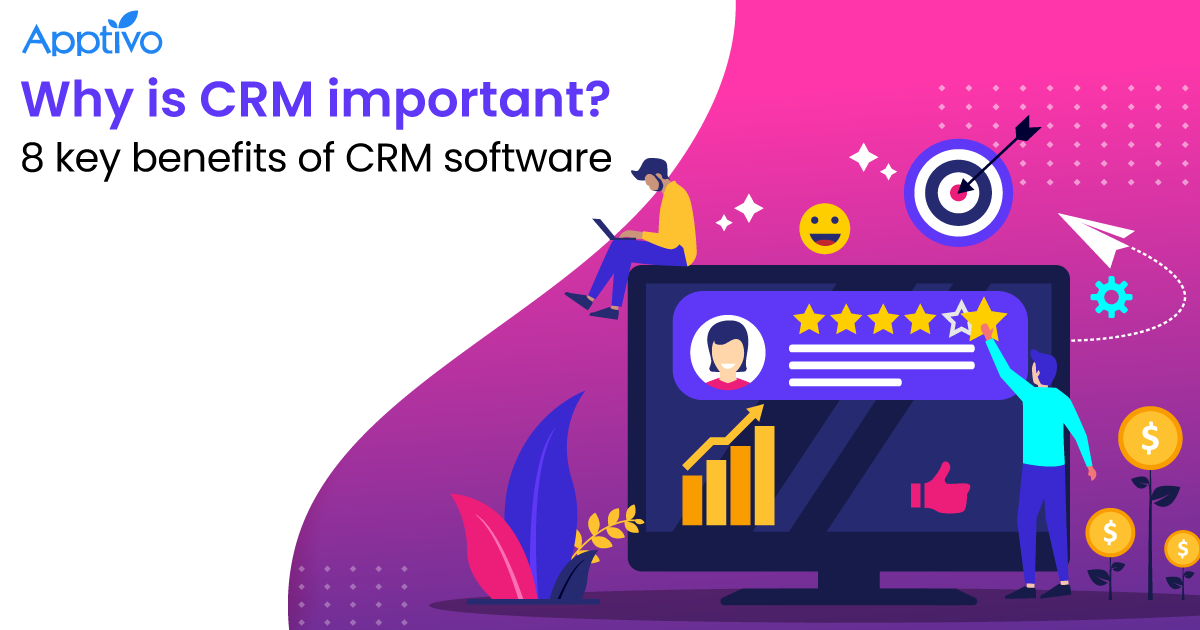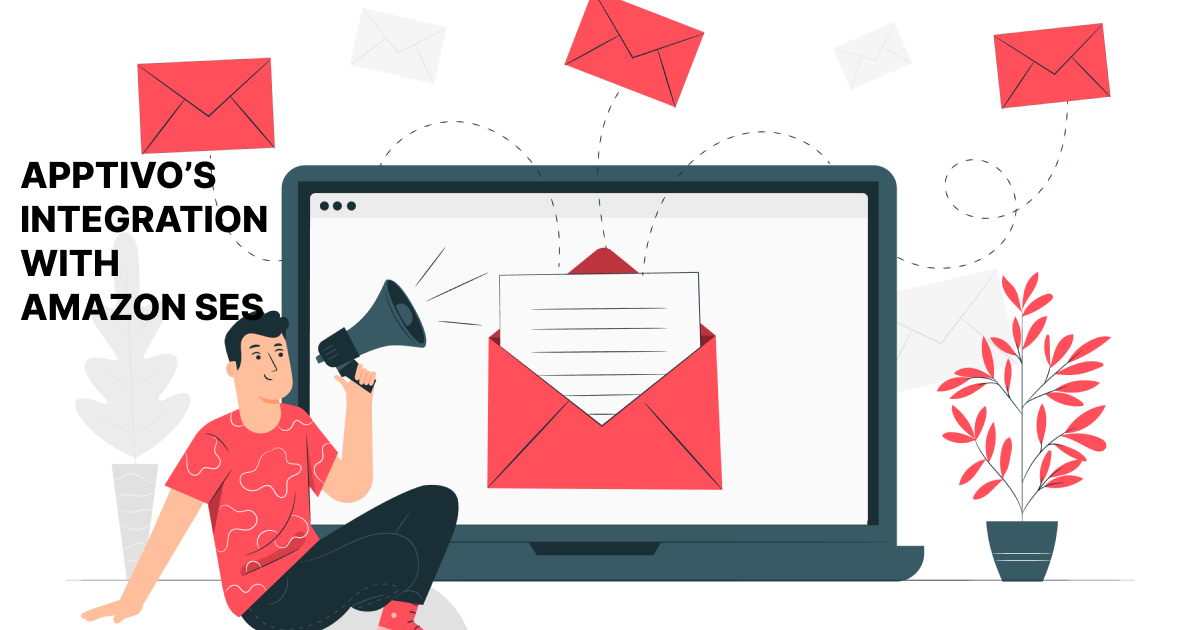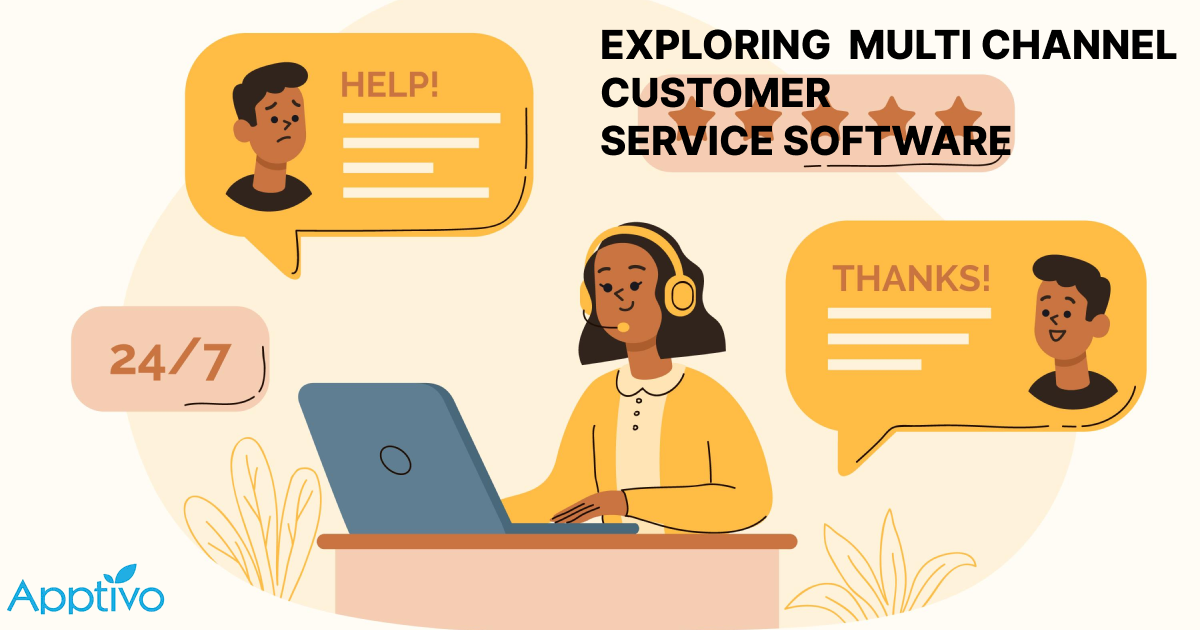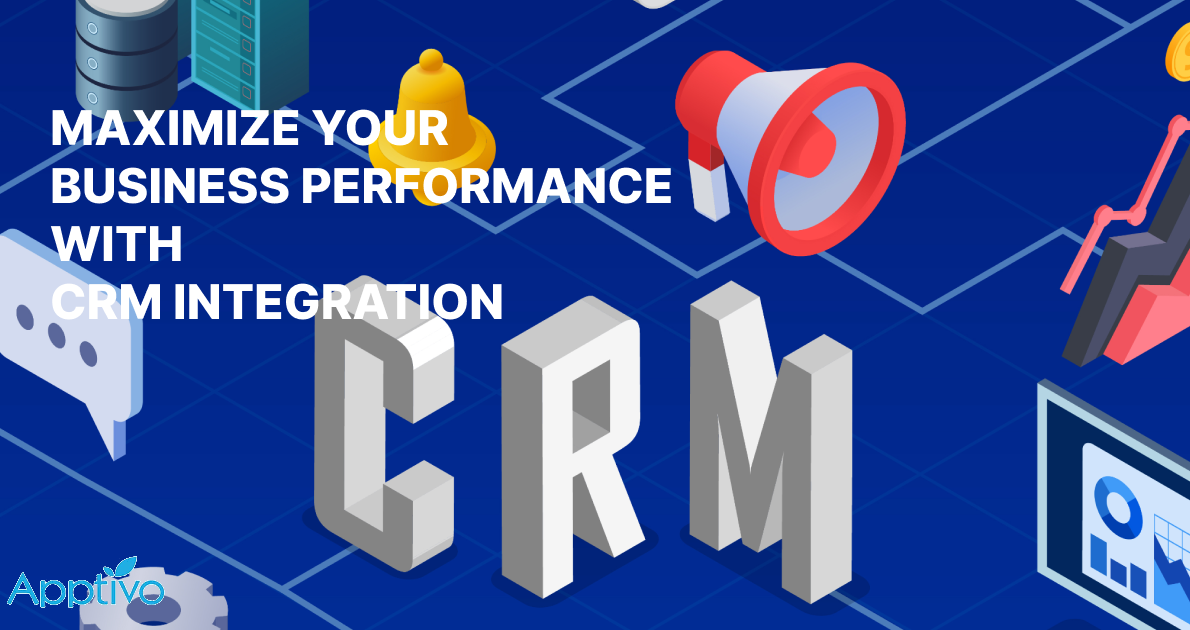 |
All About Key Benefits of CRM Software
2. 9 reasons why CRM is important for an organization
In a competitive business world, where managing smooth customer interactions is essential for customer retention, customer relationship management is a key differentiating factor that can determine the success of a business.
As interactions happen across multiple channels and leads are generated in multiple ways, managing customer information by consolidating data from every interaction from every channel, has become a necessity. Customer relationship management software makes it possible by tracking all the interactions across multiple channels and recording customer information from website forms, phone calls, customer care interactions, emails, social media, etc., under a unified customer profile in a centralised location. Using this customer information, CRM system helps companies serve the customers better and ensure a smooth relationship. CRM systems enable companies to provide a uniform customer experience across channels and ensure a smooth customer journey, which is key to customer retention.
Why is CRM important?
Customer relationship management is crucial for any online business. CRM makes it possible for businesses to capture data and leverage it to improve lead generation, lead nurturing, personalization, customer experience, sales conversion and customer relations in ways that human intervention cannot achieve all that through manual collection and storing of information.
9 reasons why CRM is important for an organization:
- Tracking of all customer interactions helps you build comprehensive and up-to-date customer profiles with an in-depth understanding of their preferences and behaviors, which can be used to personalize communication and convince them to make purchases.
- Centralized customer information makes data available across the organization for automating operations and achieving efficiency all around.
- Constantly updated customer profile keeps latest customer information readily available for better interactions with customers.
- Consistent customer experience can be delivered through communication based on data obtained from past interactions.
- It is possible to achieve automation of repetitive, yet important tasks, with CRM.
- CRM is indispensable for the post-pandemic hybrid work environment where employees from multiple locations would be able to access centralized customer information remotely.
- CRM makes it possible to generate leads, nurture them and carefully personalize marketing based on individual preferences to achieve a significantly higher success rate in sales conversion.
- CRM provides detailed analytics and insights on the performance and productivity of the organization, which helps to continuously optimize processes and make sound business decisions.
- CRM opens up new possibilities in terms of automated marketing and a greater degree of personalization provide a superior customer experience.
8 key Benefits of using a CRM software
- A great customer experience
- Nurturing leads and identifying prospective customers
- Better sales conversion
- Forecasting sales based on historical data
- Categorization and personalization
- Better marketing
- Analytics and reporting
- Workflow efficiency
1. CRM for delivering a great customer experience
Customer experience is a broad term that is not determined by a single factor or a single instance of good service provided by an organization. Customer experience may comes from a variety of factors, including:
- Ease of finding what the customer needs
- The possibility of buying the products at the most affordable price
- Getting good offers and discounts in a timely manner
- A friendly sales team that precisely understands customer requirements and gently guides them towards selecting the right products through consistent communication
- Ease of purchasing that makes life easy to the customer
- Good follow-up communication to address grievances, if any
- Hassle-free return of products and refund process
- Great customer service that builds trust and instills confidence in the brand
- Personalization of communication to give a sense of exclusivity
While CRM systems are not solely responsible for a great customer experience, they play an important role in ensuring that customers get a good experience throughout the customer journey. They help you meet customer expectations by empowering you with data and automation to fulfil the aforementioned contributing factors to customer experience.
2. CRM key to Nurturing leads and identifying prospective customers
The tracking mechanisms of CRM constantly grade leads based on their website activities and help identify the leads that will most likely convert. Good leads or prioritized and can be nurtured through customized content and personalized marketing communication. Since the CRM system records interactions throughout the customer journey, when the customers’ interests change, you can understand what the customer will look for next in advance and decide proactively to keep the lead engaged and take him/her through the customer journey all the way to conversion.
For instance, if health-conscious customer searches for non-stick cookware, marketing automation may send product suggestions to the customer through emails, listing some popular non-stick cookware on your site. Along with it, it will also send relevant content and how to choose cookware for good health. When the customer opens the email and reads that guide, and if the products he/she searches on your site changes based on that, your product suggestions should also change accordingly.
For example, if the customer was previously searching for cookware with chemical non-stick coatings, and after interacting with your email, if he/she is specifically searching for ceramic cookware, you cannot suggest products based on the customer’s previous preferences. You have to narrow your product suggestions in order to achieve conversion; when the customer buys a ceramic cookware instead of a common chemical coated non-stick cookware, the total amount spent on purchase and the profit margins increase.
CRM system captures this change of preferences, update the customer information and helps you automatically change the product suggestions proactively. When you start suggesting ceramic cookware, automatically there is a new opportunity to upsell silicone ladles that won’t scratch ceramic cookware. Throughout these steps, CRM gives you the power to control how you nurture the leads and create the best possible outcomes.
3. CRM helps in Better sales conversion
CRM systems help you identify the leads that are most likely to convert and alert the sales and marketing teams to focus on them. This increases the chances of conversion drastically and uses the time and energy of your workforce efficiently to work on only what is important.
Secondly, CRM systems integrate with your marketing tools to leverage customer information and personalize email marketing with the customers. This helps to precisely target customers with offers and product suggestions that they are most likely interested in, improving the chances of conversion.
Thirdly, CRM systems present the sales team with historical data of the customers’ information, which helps sales teams to build a picture of the customer journey from the beginning, analyze the weak spots in customer experience an address those issues to create a smoother journey for the customer. It helps to make the sales cycle shorter and enable the sales team to achieve more.
4. CRM for Forecasting sales based on historical data
CRM is an important tool for sales teams, not only just to improve conversion, but also to forecast sales based on past performance and adjusting expectations, objectives and targets accordingly. This helps you to set realistic, yet ambitious expectations and targets for your teams, and improve performance and profitability.
Historical data also helps to identify opportunities during various points of time in a year. For example, if a particular product, say a particular brand of wireless headphones, sold well and went out of stock early during the previous Black Friday, there is a possibility of the same happening during the next black Friday as well, provided market conditions and competition has not changed much. In that case, the CRM software can forecast how many units can be sold during this black Friday based on historical data and current trends. It will help you stock those particular products in adequate numbers to meet the demand and improve your sales. Conversely, you can stock slow-moving products less, based on the projections.
5.CRM for better Categorization and personalization
Different customers have different preferences. Communicating with everyone in the same way and providing same product suggestions and offers to everyone leaves conversion to chance. For instance, there is no point in displaying targeted ads on the launch of new range power tools to someone who is looking for a kitchen appliance.
So it is essential to segment them based on their likes, interests and product searches, customize relevant communication and create a unique brand experiences in such a way that it appeals to every segment of customers. CRM categorizes users and gives you the essential information on how you should communicate to each of those segments in order to convince them to make a purchase.
6. CRM brings in Better marketing
Understanding market scenario and analyzing customer preferences and demands play a key role in devising a good marketing strategy. The tracking mechanisms help you continuously build individual customer profiles incorporating all the interests, behaviors, customer interactions with your company, previous purchases, searches, etc. Empowered with a wealth of information on what different customers want, you can devise an excellent marketing strategy that works.
The aforementioned categorization of customers creates a stable base for you to reach out to them with key marketing activities such as email marketing campaigns and targeted digital ads. CRM software makes it possible to automate these campaigns and send emails automatically to different segments of customers with personalized content, product suggestions, offers, announcements such as new product launches, etc. It helps you keep the customers engaged, provide them what they need and retain them for a long period of time.
7. CRM enables Analytics and reporting
CRM provides scope for advanced analytics. As it tracks every activity and records every single detail of customer activity and interaction, it can pull up important data points such as the product categories the customer is currently exploring, the time they spent in reading product description, etc. This helps to optimize every thing right from product suggestions to the online store design.
Using analytics, you can customize offers, understand the trends, forecast sales, implement marketing campaigns and personalize communication.
CRM can precisely build a picture of the effectiveness of your marketing campaigns using detailed insights which include how many leads actually opened the mail and clicked product suggestions and other personalized content; it can also show you how many of them actually purchased suggested products. This can help you constantly enhance your content and improve your marketing effectiveness.
With comprehensive insights on sales and marketing performance, you can also measure the performance of your teams and organization as a whole. CRM systems generate automated reports encompassing all those insights, disseminate them quickly and help the management take informed business-critical decisions.
8. CRM for Workflow efficiency
CRM improves workflow efficiency through automation of various tasks. It also makes data available across the organization so that various departments can leverage it to improve their operations. For instance, the segmentation of customers gives a head start to the marketing department. Without this automation, they would have to employ a dedicated team to analyze all that and segment users manually, study the patterns and filter the potential customers. After customizing email marketing campaigns for various segments, employees will have to manually enter the names of your customers and their email addresses and send them manually, one by one. It is impractical and expensive to carry out these time consuming operations with human intervention. CRM automates all these processes and makes workflows efficient. It stores data in a centralized location and leverages it to offer scope for automation and improvement in workflow efficiencies in the areas of sales, marketing, procurement, customer support and service, and also finance and accounts when it comes to analyzing and forecasting sales data and marketing effectiveness.
CRM Vs Excel
Why not to use excel sheet
Spread sheets are some of the most basic CRM tools. You can enter data manually, pull up data points to visualize insights to analyze performance using a spreadsheet software. However, it is only suitable for small organizations that do not require extensive automation. You will need a dedicated CRM software when:
- You are a large organization with more than just a few employees
- You have multiple departments with dedicated staff to carry out various operations
- You have multiple sales channels and have an omni channel marketing strategy
- You have multiple storefronts, including your e-commerce site, social media store, etc.
- You have a vast pool of customers with diverse demographic backgrounds and wide-ranging preferences
- You need to prioritize generating a vast number of quality leads, track them and nurture them continuously
- You need to automate your operations and make your business data-driven
- You want to offer high degree of personalization to retain customers
Latest Blogs

Apptivo's Integration with Amazon SES for Outgoing Email Server
Amazon Simple Email Service (SES) is an email platform that provides an easy, cost-effective way to send and receive email using your email addresses and domains. Apptivo has migrated its email service to Amazon SES (Simple Email Service) to enhance the performance and reliability of our email services
Read more →
EXPLORING MULTI CHANNEL CUSTOMER SUPPORT SOFTWARE
1.What is customer service software? 2
Read more →
Maximize your business performance with seamless CRM Integration
1.What is CRM Integration? 2
Read more →
